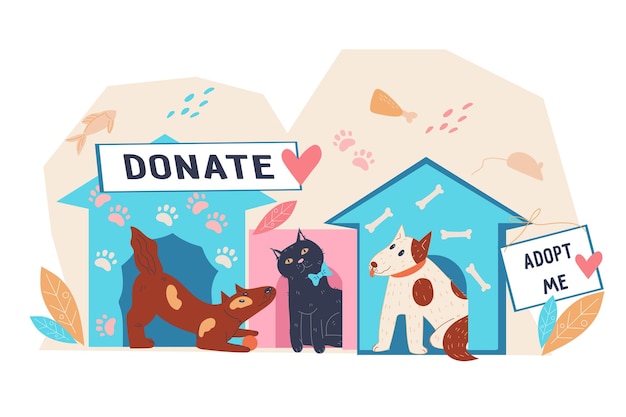By Michael Kanaabi Dollar
While there are a number of local animal care charities in Uganda that are doing a good job taking care of especially stray domestic and some wild animals, there are also a number of fraudsters and scammers that have perfected the art of duping unsuspecting donors into forking out lots of money to their fake charities in the guise of saving and helping stranded animals.
What do animal care practitioners have to say?
According to Melissa Kay an Animal Rights Activist and care giver, “Many of the young men involved in setting up these fake animal charities in Uganda specifically and other developing countries see this as a route to easy money. People are moved by the sorry looking state of animals and children these people post on social media and are moved to donate entirely based on that minus finding out what this money is actually used for.”
Melissa says these scammers usually have partners and collaborators overseas who collect the donated monies on PayPal because the service is not operational in Uganda and given that the true identities of PayPal account owners can be difficult to trace they get away like that.
How can you distinguish between scammers and genuine animal care charities?
One of the critical signs of a legitimate animal care center or shelter would be having properly identifiable accounts in banks under their business name or charity with the same applying to their phone numbers which would be used to receive E- money from World Remit or Sendwave as donations. The lack of those is a clear sign for one to keep away.
A number of checks and licenses should be in place for intending donors before they release their money to any one. For starters intending donors should do some background work and search on the charities they intend to donate to.
“In the case of Uganda, the charity should have a proper registration with the Uganda Registration Services Bereu (USRB) and this can be cross checked in the online portal of this government registration agency. The animal shelter should have a license authorized by the Ministry of Agriculture Animal Industries and Fisheries (MAAIF) and this too can be verified online” Melissa says.
On top of that, veterinary records of the animals under the care of any said charity which can be independently verified by an independent veterinary Association plus a report on how much money they receive each year plus their expenditure should also be seen by the intending donors before any donation is made.
They should have their own website as a charity that has their business contacts, physical address and financial contact details that include bank accounts and other related information in the names of the organisation not an individual or a PayPal account that is non operational with in for example Uganda and it’s ownership can not be expressly verified.
Many of these scammers simply have Instagram or Facebook Accounts and reels which are not enough to certify they are genuine entities so donors shouldn’t make rush decisions based on that.
Melissa notes that many of these so called fake animal shelters share the animals they take photos among themselves if one is to observe more critically. As s result you will see multiple photos of the same animals across various Facebook and Instagram accounts on social media. “To try and disguise this, different background and compounds ate used to take the photos so the unsuspecting eye can miss it easily” she says.
Poor grammar in their wording is also something that has been consistently observed among these scammers plus they often include 25 to 30 hashtags in their posts to make them more compelling on top of using very similar fonts in the pictures telling their stories.
On closer observation, most of these scammers seem to be trained by the same group of leaders on how to catch the attention of unsuspecting donors and compel them to donate, she observes.
How can we help the authorities to apprehend these scammers?
For starters, one can go to Facebook and Instagram, search for animal shelters in Uganda for example and when one comes across an entity or social media account that meets the description laid down above, they are certainly fake and should be reported as frauds to these platforms.
Giving money to charities without a bank account with their business names on the accounts should be strictly avoided Melissa advises and this includes not giving money on PayPal to anonymous account holders.
For clarity Melissa says PayPal Giving Fund USA has special accounts where legitimate registered charities and businesses are verified.
She adds that some of these scammers use personal PayPal accounts soliciting funds allegedly for charities in Uganda yet the money is going into their accounts in the USA plus other places and not straight to Uganda creating room for what looks like money laundering and ought to be examined further by authorities.
What punitive punishments do you think these scammers should be given to ensure other would be scammers don’t join the trade?
Firstly these scammers need to be prosecuted and imprisoned for animal abuse and neglect considering they deliberately keep these animals in a painful sorry state to keep using them in pictures and videos online as baits to pull unsuspecting donors.
They should also be further punished for fraud and pretending to be Veterinary medical professionals as they are seen injecting these animals among other activities in the videos, while their activities also involve a risky aspect of international money laundering that needs prompt and deeper investigation by the relevant authorities.
Which type of people indulge in these scams?
The scammers are usually young boys with not much to do for themselves. They are used by more seasoned adult scammers who hide in developed countries, use these boys to set up these fake social media pages and handles to scam unsuspecting donors and collect the money in the countries where they are hiding while giving the young boys commissions for the dirty work they do.
My wish would be that these cowardly lazy adults are discovered and prosecuted for money laundering under international law wherever they may be.
What can be done to stop this vice?
Incase one comes across this type of suspicious and fake animal shelters in their neighborhood, they should report to and follow up with the local police until something is done.
Melissa advises that it’s the job of the local police to follow up and shut down these fake shelters as part of it’s enforcement duties and if they choose to turn a blind eye on the complaints, you can escalate the matter to the Uganda Veterinary Association, while also pushing other local authorities to take prompt and tough punitive actions against these scammers.
Do you have a story in your community or an opinion to share with us: Email us at Submit an Article









